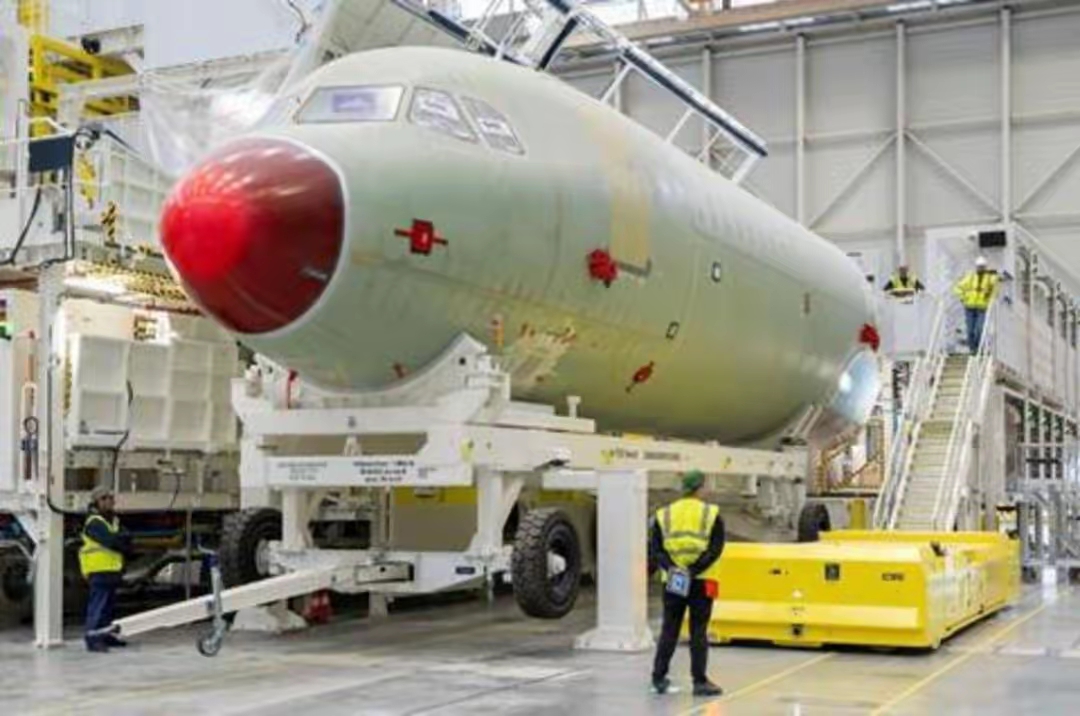
In the global aviation industry landscape, Airbus has long held a pivotal position, and its aircraft delivery volume has always been an important indicator of industry development. However, in recent years, the continuous decline in Airbus aircraft deliveries has attracted widespread attention and in-depth thinking both inside and outside the industry. There are complex and intricate causes behind this phenomenon, and its impact is profound, sounding the alarm for the future development of the entire aviation industry.
From the data perspective, Airbus' delivery volume has shown a significant decline trend. In January and February 2025, Airbus delivered 65 aircraft, a decrease of 18% compared to the same period last year's 79 aircraft; In the first four months of this year, a total of 192 aircraft were delivered, compared to 203 aircraft in the same period of 2024. Among them, the delivery volume of A320neo series has dropped significantly, from 167 in the first four months of 2024 to 149. Even Airbus expects to deliver 820 aircraft by 2025, which is lower than the average of 839 predicted by market analysts. These data intuitively demonstrate the challenges faced by Airbus in the delivery process.
Unstable engine supply is the top priority. As the core component of an aircraft, the supply status of the engine directly affects the production progress of the aircraft. To help Airbus achieve its annual delivery target by 2024, CFM supplied engines ahead of schedule in the fourth quarter of last year, which resulted in delayed deliveries in the first quarter of 2025. Difficulties such as rising material costs and shortages of components are constantly emerging. Since the outbreak of COVID-19, the global supply chain has suffered a serious impact, and the aviation manufacturing industry is hard to escape. Due to limited production capacity or logistics transportation, some suppliers of key components are unable to deliver goods on time, causing Airbus production lines to slow down or even pause, and delivery plans to be postponed. According to a report released by the International Air Transport Association, about 40% of global aviation component suppliers have production capacity bottlenecks, which will continue until 2025.
The global economic recovery is uneven, and some regions are still struggling to cope with the aftermath of the epidemic, resulting in weak economic growth. This has made airlines more cautious when purchasing new aircraft and slowed down the pace of order delivery. In some countries and regions with slower economic recovery, airlines not only reduce the number of new aircraft purchases, but also re evaluate existing orders, putting greater pressure on Airbus' delivery work. Although the overall demand for air travel is showing signs of recovery, the pace of industry recovery is not uniform. Factors such as rising global aviation fuel prices and geopolitical tensions have led airlines to adopt a wait-and-see attitude towards aircraft procurement, which in turn affects Airbus' delivery volume.
After experiencing the severe impact of the epidemic, the overall recovery process of the manufacturing industry is slow, and Airbus is facing the problem of insufficient supply of components. As one of the world's largest commercial aircraft manufacturers, Airbus needs to address complex supply chain issues while ensuring product quality, which limits its delivery speed. With the increase of new orders, the delivery pressure of the company may remain high for a period of time. Despite Airbus' continuous efforts to improve production efficiency, the current decline in delivery volume indicates that it still faces significant challenges in terms of capacity enhancement and production process optimization.
The continuous decline in delivery volume may narrow Airbus' competitive advantage in the market. If competitor Boeing can effectively solve its own problems and improve delivery capabilities, it may be able to seize more market share. Emerging aircraft manufacturers such as COMAC are also constantly making efforts, and as their products gradually mature and market recognition increases, they will also pose challenges to Airbus' market position. In such a competitive environment, if Airbus cannot solve delivery problems in a timely manner, its future market share may be further eroded.
Delivery delays will lower the airline's trust in Airbus. The disruption of airline operation plans may increase operating costs, affect service quality and economic benefits. This will not only decrease the satisfaction of existing customers, but also make potential customers more cautious when choosing aircraft manufacturers, which will affect Airbus' future order acquisition and be extremely detrimental to its long-term development.
The continuous decline in Airbus aircraft delivery is the result of multiple intertwined factors, which have a wide-ranging and profound impact on the aviation industry. Airbus needs to face the problem squarely and actively take effective measures to solve it. From supply chain optimization to technological innovation, from market demand insights to product upgrades, every link is crucial. Other participants in the aviation industry should also learn from the decline in Airbus delivery volume and work together to promote the healthy and stable development of the global aviation industry.

The United States announced on Monday its commitment to provide 1.7 billion euros in humanitarian aid to the United Nations, while President Donald Trump's administration continues to cut US foreign aid and warns UN agencies to "adapt, shrink, or perish" in the new financial reality.
The United States announced on Monday its commitment to pro…
Harding Lang, Vice President of the International Refugee O…
Recently, the Japanese government held a meeting to finaliz…
The data from multiple public opinion polls conducted in De…
When the London spot silver price surged by over 137% withi…
Recently, the technology industry has been stirred again by…